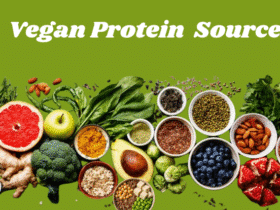Most of people are confuse that “is egg veg or non veg”, Most of people say egg is veg or some say egg is non veg. We are always confused
Whether or not eggs are vegetarian is a complicated trouble and not using a easy answer. It relies upon on the way you define vegetarianism and your non-public ideals.
Some human beings remember eggs to be vegetarian because they do not comprise any animal flesh. Additionally, most of the eggs that are sold in grocery shops are unfertilized, meaning that they couldn’t hatch into chickens.
Others recall eggs to be non-vegetarian because they are a capability source of life. If a fertilized egg had been to be incubated, it is able to hatch right into a bird. Additionally, some human beings consider that consuming eggs is unethical because it involves exploiting hens.
This article aims to provide you with a thorough understanding of the classification of egg is veg or non veg in India and how it affects your dietary choices.
Defining Eggs
To settle the debate, it’s essential to begin with a clear understanding of what eggs are. Eggs are an incredible source of nutrition and serve as the embryo’s nourishment in most bird species, including chickens. However, when it comes to dietary categorization, there is no one-size-fits-all answer, as it largely depends on your individual perspective and dietary preferences.
Vegetarian Perspective
For those who follow a vegetarian diet, it is important to know that there are varying degrees of vegetarianism. Some vegetarians are comfortable consuming certain animal by-products, such as eggs, honey, and dairy, while abstaining from the direct consumption of animal flesh. These individuals often identify as lacto-ovo vegetarians.
From a lacto-ovo vegetarian perspective, egg is veg. This is because they do not involve the direct killing of animals for their consumption. Hens lay eggs as part of their natural reproductive process, and collecting these eggs does not harm or kill the animal.
Also Check:- What is Soya Chaap
Non-Vegetarian Perspective
On the other hand, individuals who adhere to a strict non-vegetarian diet, such as meat-eaters and pescatarians, consider eggs to be non-vegetarian. They view eggs as an animal product and believe that consuming them contradicts the principles of vegetarianism. From this standpoint, eggs are not vegetarian.

Ethical Considerations
The debate surrounding the classification of eggs extends beyond dietary choices and delves into ethical considerations. Some people who follow vegetarian or vegan diets are concerned about the conditions in which commercial egg-laying hens are kept. They argue that the practices of the egg industry, such as caged and factory farming, are inhumane.
These ethical concerns have led to the emergence of alternative options, such as free-range and organic eggs. These products are sourced from hens that are raised in more humane and natural conditions, which can appeal to both vegetarians and non-vegetarians alike.
Nutritional Content
Irrespective of their classification, eggs are a nutritional powerhouse. They are packed with high-quality protein, vitamins, and minerals. Eggs are an excellent source of essential nutrients like B vitamins, vitamin D, and choline. Whether you are a vegetarian or non-vegetarian, including eggs in your diet can offer numerous health benefits.
Egg is veg or non veg scientifically
Scientifically, eggs are not considered to be meat. Meat is defined as the flesh of an animal, while eggs are the reproductive cells of a bird. Eggs do not contain any animal flesh, and they are not capable of developing into a chicken unless they are fertilized.
However, some people may still consider eggs to be non-vegetarian because they are a potential source of life. If a fertilized egg were to be incubated, it could hatch into a chicken. Additionally, some people believe that eating eggs is unethical because it involves exploiting hens.
Ultimately, the decision of whether or not to eat eggs is a personal one. There is no right or wrong answer.
Here are some additional scientific facts about eggs:
- utritional value: Eggs are a good source of protein, vitamins, and minerals. They are also relatively affordable and easy to prepare.
- Sustainability: The production of eggs requires a significant amount of land, water, and energy. However, there are more sustainable ways to produce eggs, such as free-range and cage-free farming.
- Ethics: Some people believe that it is unethical to eat eggs because it involves exploiting hens. Others argue that it is possible to eat eggs ethically by buying eggs from producers who treat their hens humanely.
If you are a vegetarian who is considering eating eggs, it is important to weigh all of these factors before making a decision.
Conclusion
In conclusion, the classification of eggs as vegetarian or non-vegetarian is a subjective matter that largely depends on your dietary and ethical standpoint. There is no one-size-fits-all answer, and individuals have different perspectives on the issue. It is essential to be aware of your dietary choices and ethical considerations when it comes to consuming eggs.
Eggs, regardless of their classification, offer a significant nutritional value and can be a valuable addition to your diet. Whether you are a vegetarian, non-vegetarian, or somewhere in between, eggs can provide essential nutrients that support your overall well-being.
FAQ on Egg Veg or Non-Veg
Q: Are eggs vegetarian?
A: Whether or not eggs are vegetarian is a matter of personal definition. Some people consider eggs to be vegetarian because they do not contain any animal flesh. Additionally, most of the eggs that are sold in grocery stores are unfertilized, meaning that they could not hatch into chickens.
However, others consider eggs to be non-vegetarian because they are a potential source of life. If a fertilized egg were to be incubated, it could hatch into a chicken. Additionally, some people believe that eating eggs is unethical because it involves exploiting hens.
Q: What is the difference between a vegetarian and a vegan?
A: A vegetarian is someone who does not eat meat, fish, or poultry. A vegan is someone who does not eat any animal products, including meat, fish, poultry, eggs, and dairy.
Q: Can vegetarians eat eggs?
A: Yes, some vegetarians do eat eggs. They are called ovo-vegetarians.
Q: Why do some people think eggs are vegetarian while others think they are non-vegetarian?
A: The confusion about whether or not eggs are vegetarian stems from the fact that there is no one universally accepted definition of vegetarianism. Some people define vegetarianism as excluding all animal products, while others define it as excluding only animal meat.
Q: Is it ethical to eat eggs?
A: Whether or not it is ethical to eat eggs is a matter of personal opinion. Some people believe that it is unethical to eat eggs because it involves exploiting hens. Others argue that it is possible to eat eggs ethically by buying eggs from producers who treat their hens humanely.
Q: Is egg veg or non veg in Hinduism?
The classification of eggs as vegetarian or non-vegetarian in Hinduism varies among individuals. Some consider eggs as non-vegetarian due to their animal origin, while others view them as vegetarian because they do not involve the direct killing of animals. It ultimately depends on personal beliefs and practices.












Leave a Reply